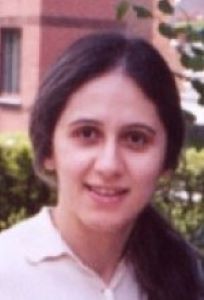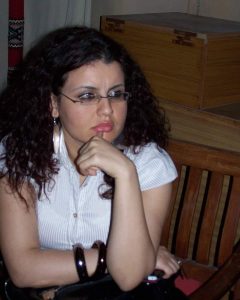We present this work in honor of Yom Ha-atzmaut.

Australian
b. 1981
Go outside.
Find a patch of grass, sand, dirt.
Sit, kneel, place a hand or just
A finger to the soft earth.
Feel it pulse back.
Open your palms and divine
The words creased between.
Rub the specks of dirt
Between your fingers,
See how they cling to skin,
How they listen in their soft-rough way.
The earth will hold you better
Than God can.
God could not stop the bullets
Or the sale of weapons.
God could not block the open
Synagogue doors.
But we keep saying, Shema,
Listen.
Israel.
Our God is One.
Singular.
Invisible.
Hiding in plain sight.
But listen, Israel, our God is beneath
Our feet, between
Our fingers, coursing
Through our veins.
Our God is trapped
In the poisoned grass,
Where the blood of our brothers cries out,
Where the ants heave centuries on their backs.
Pray to the God who sharpened the tiger’s teeth,
Who stored the roar in its throat.
Pray to the God who gave you lungs and tongue
To sing and groan and hum.
I swear to you
When the leaf shivers in the wind
You have given it chills
From all its listening.
The earth hears your prayer.
There is nowhere for God to hide.
Get down on your knees and let
This precious earth soften for the weight of you.
You are held.
You are heard.
The wind pulls its blanket over your back,
Smooths the hair from your face,
Touches your cheek
With its cool, trembling hands.








